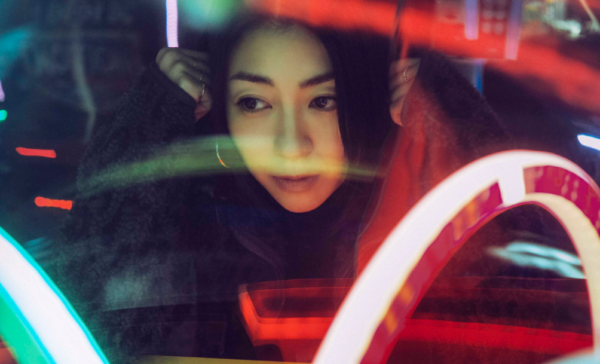
Editor’s Note: This is a guest post written by Patrick St. Michel (@mbmelodies). I’ve whined for years now about how hard it is to find quality writing that give honest takes on J-pop releases, and his newsletter has been a life raft for my interest in the market. Check it out.
Utada Hikaru wants to know if happiness can transcend pain. From her earliest hits, she was holding ontofirst love or letting time tell her how everything would play out orconfronting the seemingly never-ending loop of joy and sadness. There’s something youthful about the perspective found in those songs though — of latching onto infatuation, and of elevating one’s own feelings into the spiritual. Most tellingly, there’s no end in sight — “now and forever you are the one,” simply seeing how things shake out. Time appears to stretch out endlessly early on — especially when you are a teenager thrust into the J-pop spotlight with the best-selling album in the country’s history — but that view closes in faster than you’ll ever expect.
This has been the thematic concern of Utada’s work since 2016, after a multi-year hiatus during which she experienced a barrage of what adulthood offers: the death of a parent, marriage, birth of a child and divorce. Her return album Fantôme found her facing all of this change, going from confidence about moving forward (“Michi,” above, complete with a line about how sad songs will eventually become nostalgic ones) to reckoning with all this grief, betraying the upbeat bounce. That one of its highlights finds Utada longing for just two hours…120 minutes!… to escape from everything captures the mood around it well. It’s among the more emotionally raw J-pop full-lengths of recent time. She polished these emotions for follow-up Hatsukoi, bringing her pop smarts to these messy feelings, but even when glossed up the tension remains (“what if we pretend…one of us will die tomorrow” is a choice to start a song).
I can’t speak to how the long-delayed theme to the pandemic-postponed final installment of the Rebuild Of Evangelion film series connects to the feature itself…a friend who did see it opening day says “not really at all”…but within the Utada-verse it’s a fitting conclusion to her 2010s body of work. It unfolds at the same gallop as most of her other uptempo songs from the last five years, while sliding out elements to create passages closer to her ballads, letting Utada’s voice take the spotlight before breaking into a sprint once again.
There’s something foggy and fragile about “One Last Kiss” though, a feeling of memories already fading away. A.G. Cook co-produces, and in all honesty I kept forgetting this the first few days after the song came out because…it doesn’t really sound like any point in his career, lacking the synthesizer fizz of PC Music or the plastic sheen of Charli XCX. Rather, it’s understated and spacious, featuring digi ripples and bass rumbles along the border but rarely smudging Utada’s verses (see those pitched “ohs” in the hook for a great example of when that works, though).
She’s off playing with expectations, opening up with glowing words about a romantic partner — going as far as to brush off The Louvre — before revisiting those old worries. “The day I first laid eyes on you, wheels began to turn / an unstoppable premonition of loss,” before later offering a succinct summary of her work to date — “yearning for someone / came hand in hand with heartache.” Then there’s that piano melody drifting in and out of the song, adding an extra pang of melancholy.
There’s no pushing through with a grin or indulging of the sadness, though. Utada already synthesized that across her last two albums. She can find balance in this moment. “One Last Kiss” considers impermanence but keeps moving forward, the only way you really can when you fully understand everything dear to you — and everything, before and now and after — ends. That she can translate that feeling into springy pop capable of standing up to anything in her catalog and providing a sort of counterbalance to the state of contemporary J-pop — where younger creators offer gloomy forecasts of what the future holds — offering optimism but never concealing the ugly realities of what comes with it. She’s collected, but when she allows herself to let go late in the song — with all those electronics on the borders surging, condensing the rush of something like “Beautiful” into about ten seconds — it delivers a release that’s hard to forget. “One Last Kiss” isn’t emotional settling or resolution, but acceptance turned ecstatic.
 Asian Junkie Asian pop. Without discretion.
Asian Junkie Asian pop. Without discretion.